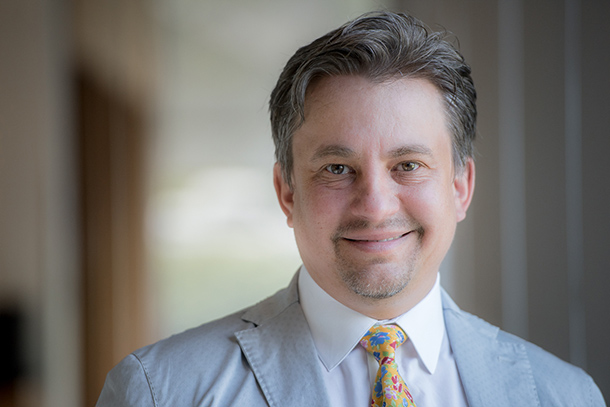What causes joints to age, lose their regenerative capacity and succumb to arthritis, and how can we slow this process? To address these questions, the National Institutes of Health have awarded a $1.69 million research project grant to investigator Denis Evseenko, MD, PhD, associate professor of orthopaedic surgery and stem cell biology and regenerative medicine at the Keck School of Medicine of USC.
Evseenko will collaborate with two co-investigators: Ebrahim Zandi, PhD, associate professor of molecular microbiology and immunology at the Keck School; and Ruchi Bajpai, PhD, assistant professor at the Center for Craniofacial Molecular Biology at the Ostrow School of Dentistry of USC, and of biochemistry and molecular medicine at the Keck School.
Led by Evseenko, the team will apply the funds from this R01 grant to understanding the cellular and molecular mechanisms that cause joint cartilage to age and lose its regenerative potential, leading to arthritis.
Specifically, they will look at a gene called STAT3, which their previous research suggests is a master regulator of joint cartilage cells. STAT3 is very active in fetal cartilage, which is highly regenerative. However, in adult cartilage, which does not regenerate, STAT3 can be linked to inflammation and arthritis. The team is working to sort out the precise signals and contexts that trigger STAT3 to orchestrate regeneration in fetal cartilage, as opposed to inflammatory disease in older cartilage.
The scientists then will determine if they can harness STAT3 to enhance the regenerative capacity of adult joint cartilage, slow down the aging process and delay the onset of arthritis.
According to the Arthritis Foundation, the disease affects more than half of men and two-thirds of women over the age of 65 in the US, and is the leading cause of disability in the U.S.
“Currently, 1 million Americans have their joints replaced every year due to arthritis, and these numbers are expected to increase as the population ages,” Evseenko said. “Anything we can do to slow the aging process and delay the need for surgery will relieve an enormous burden on our health care system and improve quality of life for millions of people.”
— Cristy Lytal


